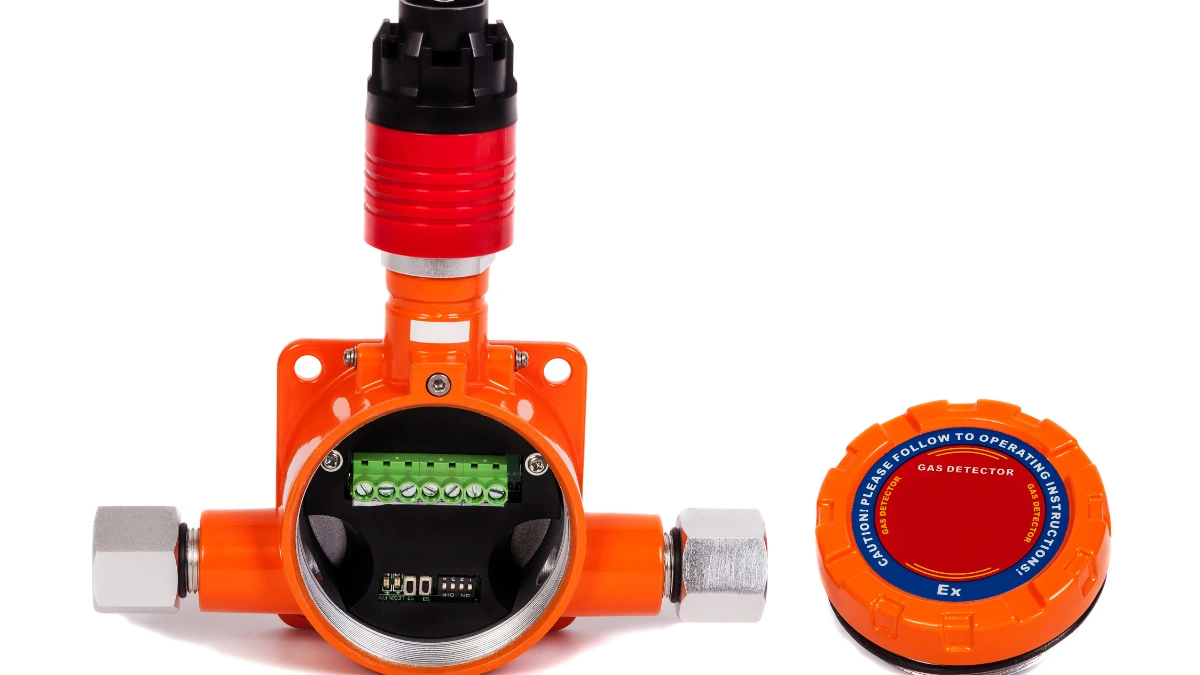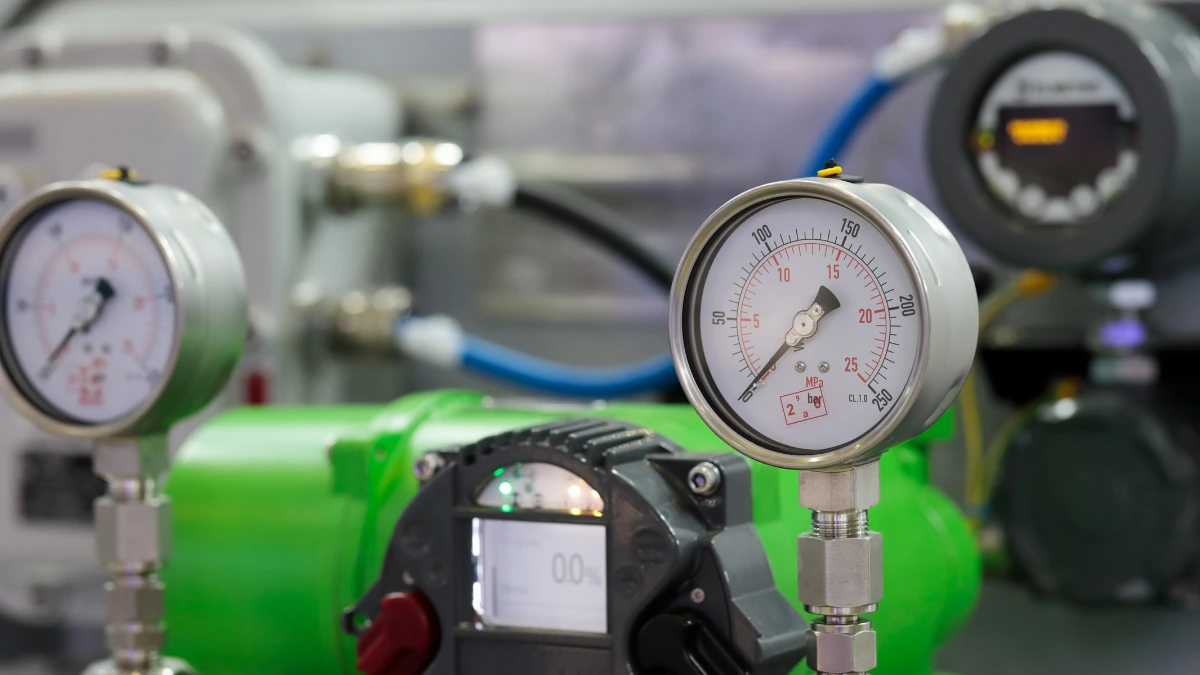An electrochemical gas detector is a type of gas detection device based on sensor technology that can detect the presence of hazardous gases that could potentially pose a risk to the environment due to leaks.
The advantages of an electrochemical gas detector include high sensitivity, fast response, and easy integration. However, the disadvantages include sensors affected by environmental conditions, limited service life, and being prone to interference from other gases.
This article will give you information about an electrochemical gas detector, including how it works, its advantages, its disadvantages, and an example of application.
What is an Electrochemical Gas Detector?

An electrochemical gas detector is a device that detects gases using electrochemical reactions. The sensor works by generating an electric current when it reacts with the target gas, and from there, the system can calculate the gas concentration.
This type is most often used to detect toxic gases such as carbon monoxide (CO), hydrogen sulfide (H2S), or chlorine (Cl2).
Its advantages include high accuracy and good sensitivity, even at low concentrations. However, because the sensor is quite sensitive, the device typically requires regular calibration to maintain accuracy.
How Does an Electrochemical Gas Detector Work?

Electrochemical gas detectors work based on chemical reactions between gases and targets inside the sensor, which generate electric currents. They are supported by several main components:
- Working electrode: Where chemical reactions occur.
- Counter electrode: Completes the circuit and maintains balance.
- Electrolyte: Both electrodes move in this solution to facilitate the electrochemical reaction.
- Membrane: Allows gas to diffuse to the electrodes but prevents electrolyte leakage.
The electrochemical reaction occurs between the two electrodes (working and counter) immersed in the electrolyte. The chemical reaction takes place when the target gas enters the sensor and reaches the working electrode.
The chemical reaction generates an electron flow, creating an electric current whose magnitude is proportional to the concentration of the target gas. The higher the gas concentration, the greater the current produced.
The Advantages of an Electrochemical Gas Detector
The electrochemical gas detector has several advantages, including high sensitivity, fast response, and easy integration. Here are some of its main advantages in detail:
1. High sensitivity One of the advantages of electrochemical gas detectors is their high sensitivity. Electrochemical sensors are known to be highly sensitive to target gases, enabling the detection of low gas concentrations.
2. Fast response
 Fast response is another advantage of electrochemical gas detectors. With their high sensitivity, any changes in gas concentration on the sensor can be responded to quickly.
Fast response is another advantage of electrochemical gas detectors. With their high sensitivity, any changes in gas concentration on the sensor can be responded to quickly.
3. Easy to integrate Another advantage of electrochemical gas detectors is that they are easy to integrate with other safety devices. Various gas detection systems can be integrated with gas detectors to achieve a higher level of safety.
The Disadvantages of Electrochemical Gas Detectors
The electrochemical gas detector has several disadvantages, including sensors affected by environmental conditions, limited service life, and being prone to interference from other gases. Here are some of its main advantages in detail:
1. Sensors affected by environmental conditions One of the drawbacks of electrochemical gas detectors is that the sensors are easily affected by environmental conditions. Sensor performance can be affected by high humidity and high temperatures, which can cause the electrolyte to dry out.
2. Limited service life
 Limited service life is another drawback of these gas detectors. Typically, the lifespan of these gas detectors is very limited, ranging from 6 months to 3 years, depending on the type of gas, usage, and environmental conditions.
Limited service life is another drawback of these gas detectors. Typically, the lifespan of these gas detectors is very limited, ranging from 6 months to 3 years, depending on the type of gas, usage, and environmental conditions.
3. Prone to interference from other gases Another drawback of these gas detectors is that they are prone to interference from other gases. Due to their high sensitivity, these devices are also easily interfered with by other gases that are susceptible to interference, in addition to the target gas, which can cause incorrect readings.
The Application of an Electrochemical Gas Detector
With so many electrochemical gas detectors available, each with its specific use, here is an example application:
- Air quality monitoring
- Industrial safety
- Food and beverage industry
- Oxygen monitoring
- Gas monitoring in medical equipment
Conclusion
Those are the definitions, how it works, advantages, disadvantages, and the example application of an electrochemical gas detector that you need to know.
This detector has some advantages, including high sensitivity, fast response, and easy integration.
The things that become a consideration are that gas detection has some disadvantages, including sensors affected by environmental conditions, limited service life, and being prone to interference from other gases.
Essentially, this type of gas detector is sensitive but also easily interfered with by other gases.